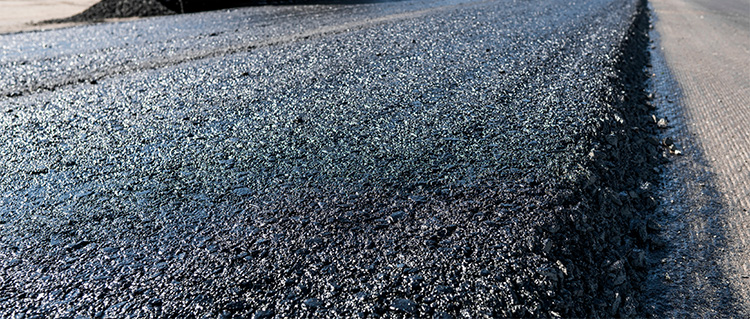
Where Is a Chip Seal Most Applicable?
When you’re getting ready to invest in a new asphalt surface, you might have the option to choose a chip seal. If you’re unfamiliar with this type of surface, it’s an extremely cost-effective, resilient process. Essentially, it combines a layer of asphalt with a layer of aggregate to form a rough, durable surface.
Chip seal is similar to asphalt, although the process and the resulting surface are a bit different. Chip seal is more affordable, but not as smooth or aesthetically pleasing. Likewise, it’s not always up for the heavy wear and tear of asphalt. If given the option between the two, it’s important to know where one may be more beneficial than the other.
The Case for Chip Seal
Chip seal is the “quick and easy” solution to paving a road. It’s usually paved right over gravel or stone, which saves on setup costs and other costs associated with full asphalt paving. If you already have something like a gravel driveway or a stony access road, chip seal is a great option. If the aggregate you have down is already graded properly, you’re halfway there!
Because of its cost-effectiveness and general resilience against the elements, chip seal is also a great solution for lesser-used roads that need to stand up for decades. Roads and driveways seeing little abuse from cars and general traffic will hold up perfectly, since the aggregate and asphalt substrate is inherently strong.
Bottom line: Chip seal is great if you’ve got a tight budget, but need a surface that’s more reliable and stable than just aggregate or dirt. Common uses include access roads, country roads, elongated driveways and hiking trails.
Situations Demanding Full Asphalt
While chip seal is a great option for many paving demands, it’s not always the best option. There’s a reason asphalt is the go-to choice: it serves the broadest range of applications and offers the greatest number of benefits for those applications.
For example, chip seals aren’t always the best for commercial parking lots. These lots see tons of wear and tear over time, as well as heavy UV and weathering exposure. Because you can’t seal coat chip seals, parking lots finished this way tend to crack and develop potholes as time passes. Patching can help, but the better investment upfront is a full asphalt surfacing.
The same goes for residential driveways. A chip seal might hold up fine with time, but true asphalt surfacing actually lends more to your property. Not only does asphalt look cleaner and more prestigious than chip seal on a residential drive, it’s also value-additive to the property itself.
Make the Right Choice
The choice to invest in full asphalt surfacing or chip seal comes down to the application. Consider where it is, how large the surface is, what type of traffic it’ll see and what its purpose is. In many cases, chip seal will be a smart investment that gives you great results for a low cost. In others, asphalt surfacing may be the better answer.
Categorised in: Paving Services
